Table of Contents
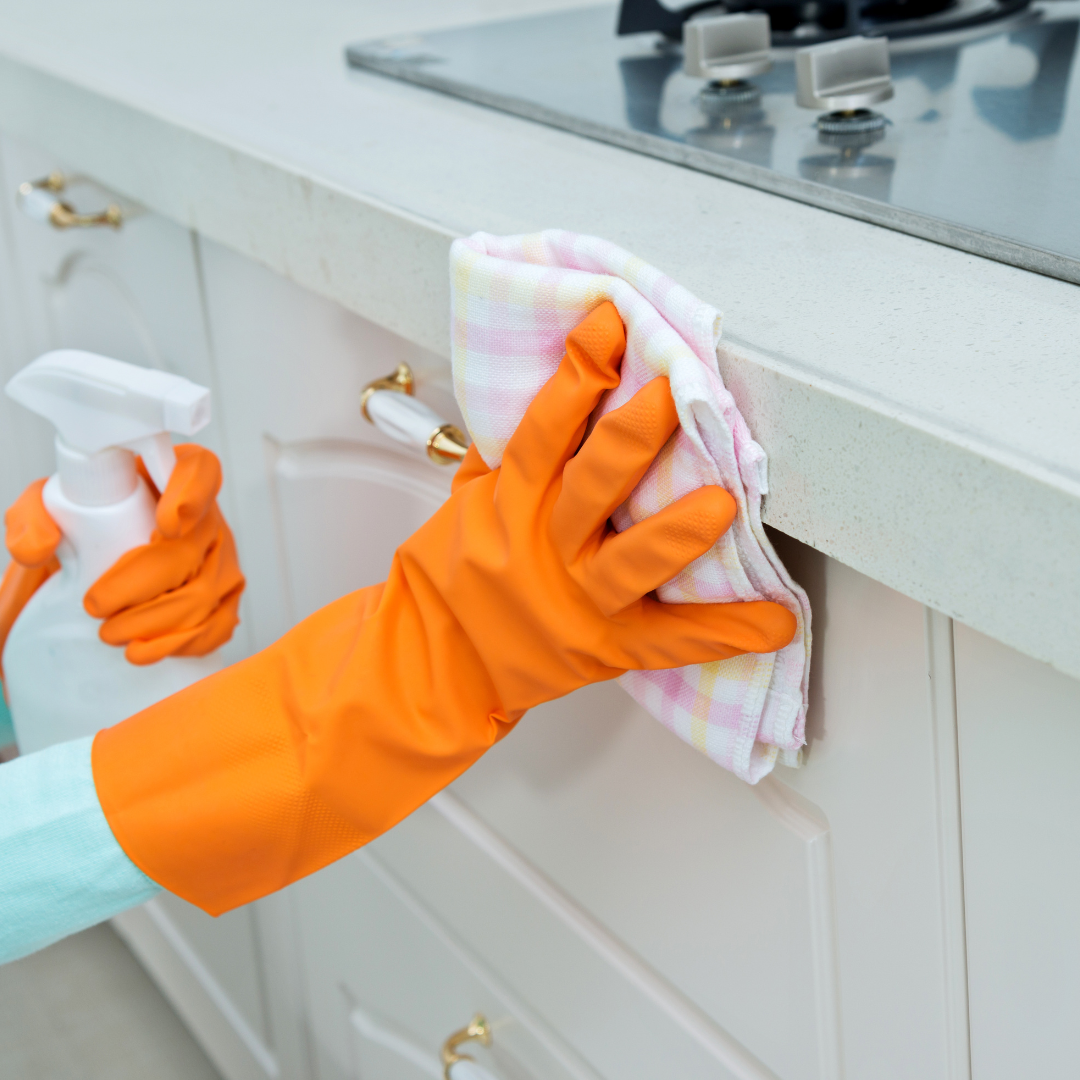
It is late one evening and you are tired after having a few friends and family members over for the day. You finish cleaning up and you notice a small spill on your lovely white granite countertops. It is a small spill, easy enough to clean up with a paper towel. However, you do not notice some of the water marks on the island or some food crumbs near the end of your countertop. They go unnoticed for quite some time and by the time you do realize it, they have formed a horrible stain on your pristine white stone.
There is no need to beat yourself up over it, stains are going to happen. We may not always see something with the hustle and bustle of the day, where a mess will go unattended and leech into your granite. Problem is, you have white granite countertops, and it looks really noticeable now.
Is there a way for you to deal with it? Of course there is! Cleaning white granite countertops is not as difficult as you may think. Following along with our cleaning guide and your granite stone will be glistening again in no time.
Is it Hard to Clean White Granite
Honestly, no. Granite stone is really easy to clean due to its specific composition. Granite is an igneous rock made from quartz, feldspar, and other stones. Through the process of melding the stones together with high heat from magma and cooling over hundreds of years, the stone has incredible durability and resistances, allowing it to be easy to maintain.
How Do Stains Form in Granite
Like other natural stones, granite is porous. These pores were originally created when steam escaped during the cooling process. These pores and grooves allow material like food debris, body oil, paint, and moisture to seep into the stone and leave a blemish, which becomes a stain.
What Type of Stains Develop on Granite
Depending on the situation, there are several types of stains which can appear on granite stone.
· Food Stains: These stains form when food matter seeps into the pores and causes etching. Food matter such as food crumbs, moisture from meat, and juices are the most common causes of food stains.
· Water Stains: These stains form when moisture from a cup or glass leaves a ring on the stone. The water eventually evaporates, leaving behind the tiny particles of metal found in water (potassium, silica, and calcium.) These minerals stick to the granite surface, making them difficult to remove. Water stains are also known as hard water stains, limescale, mineral deposits, or mineral build-up.
· Oil Stains: These stains can form when naturally touching countertops with greasy hands or spilling cooking oil on the countertop.
· Paint Stains: As the name suggests, paint stains develop when paint is spilled on the countertop and sinks into the pores.
[get_quote]
How to Clean White Granite
Depending on how deep the stain is on your white granite, it will require different levels of effort to remove.
Materials
|
Item |
Explanation |
|
Multiple Soft Cloths |
Used for cleaning and drying. Preferably a microfiber cloth |
|
Mild Dish Soap |
Soft dish soap is less corrosive and acidic, making it easier to clean granite without causing etching |
|
Soft Scrubbing Brush |
A delicate brush with a softer edge to not etch granite while providing enough abrasion to remove debris |
|
Rubbing Alcohol |
Safe cleaner for stain removal, should be diluted before use |
|
Razor Blade |
Flat edge razor to remove mineral deposits or debris clinging to granite |
|
Baking Soda |
Abrasive cleaner which can be used with water to make a poultice and chemically remove stains |
|
Bucket of Warm Water |
General cleaning and diluting stronger cleaning agents |
|
0000 Steel Wool |
Alternative option for scrubbing brush, ultra fine and less change to etch stone |
Method 1: Mild Dish Soap + Warm Water
Step 1: Fill a bucket with warm water.
Step 2: Mix in a few drops of the mild dish soap.
Step 3: Use one of the soft cloths and soak the rag in soapy water.
Step 4: Wring out excess water in the bucket so as not to spill on the countertop.
Step 5: Place the wet rag onto the stained area and wipe in small circles. Use a small amount of pressure to buff out the stain.
Step 6: If the stain remains, dip the rag back into the soapy water and repeat steps 4 and 5.
Step 7: Once the stain has been removed, empty out the bucket of water and fill it with clean, non-soapy warm water.
Step 8: Use a different rag and dip it into the bucket of water.
Step 9: Repeat step 4.
Step 10: Wipe down the countertop so there it is clean and clear of any soapy residue.
Step 11: Use a dry soft rag to absorb any remaining moisture on the countertop to prevent water stains from developing.
Method 1 is most effective for general cleaning and removing fresh stains on granite stone.
Method 2: Rubbing Alcohol + Warm Water
Step 1: Fill a small bucket or cup with warm water.
Step 2: Mix in a few drops of rubbing alcohol.
Step 3: Dip a corner of a soft cloth into the mixture.
Step 4: Wring out excess liquid into the cup so as not to spill on the granite surface.
Step 5: Place the wet rag onto the stained area and wipe in small circles. Use a small amount of pressure to buff out the stain.
Step 6: If the stain remains, dip the rag back into the soapy water and repeat steps 4 and 5.
Step 7: Once the stain has been removed, empty out the bucket of water and fill it with clean warm water.
Step 8: Dip the dry end of the rag into the clean water.
Step 9: Repeat step 4.
Step 10: Wipe down the countertop so there it is clean and clear of any soapy residue.
Step 11: Use a dry soft rag to absorb any remaining moisture on the countertop to prevent water stains from developing.
Method 2 is excellent for removing oil, paint, and some food stains.
Method 3: Baking Soda + Warm Water
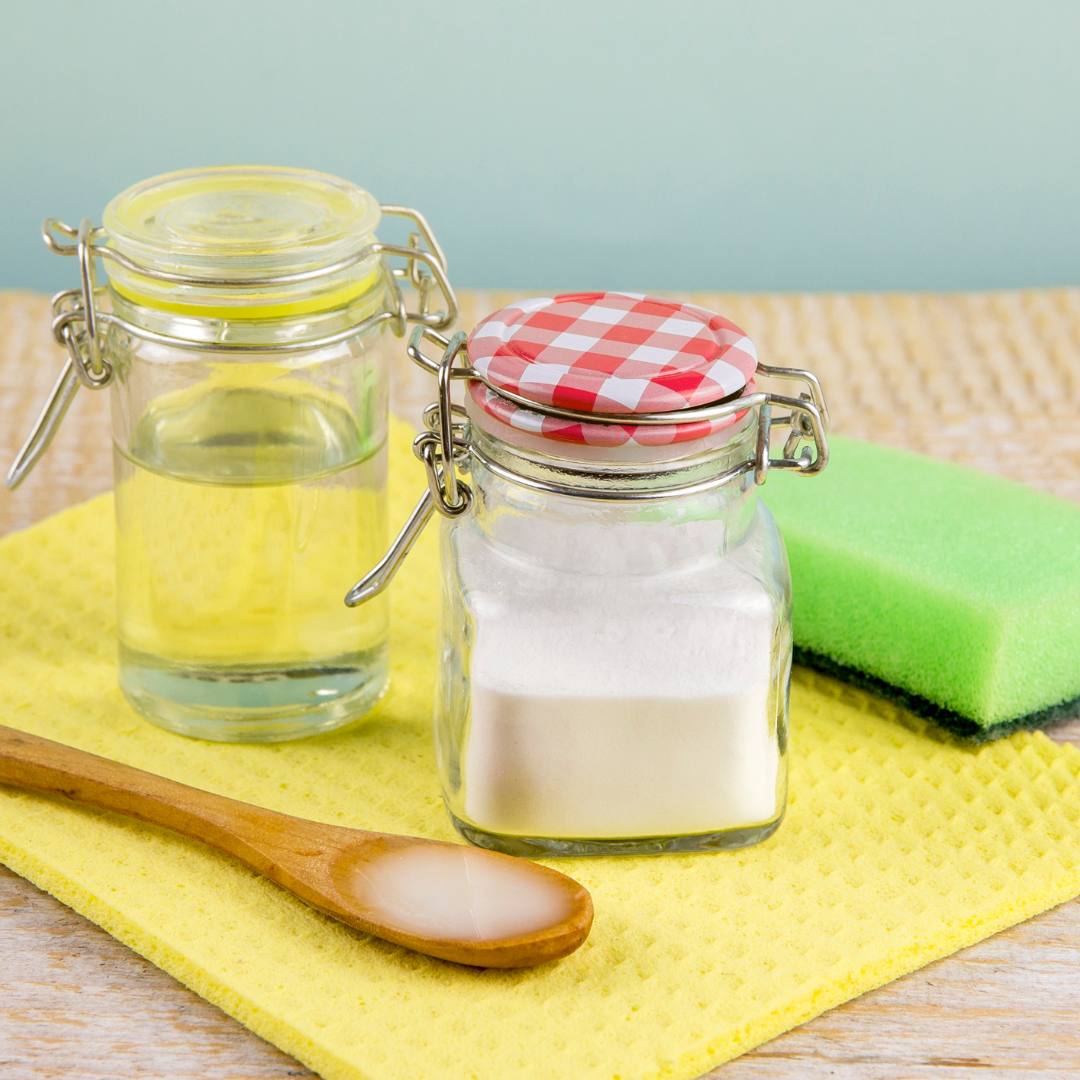
Step 1: Fill a bucket with warm water.
Step 2: Sprinkle in baking soda and mix with a flat spoon or object until it takes on a paste-like consistency.
Step 3: Use the flat spoon or spatula to scoop up some of the baking soda concoction and place it on the stained area. Make sure to cover the entire stain in an even layer.
Step 4: Place plastic wrap over the stained area, covering the baking soda mixture.
Step 5: Take down the corners of the plastic wrap so it forms a tight seal.
Step 6: Let sit for 24 hours.
Step 7: After waiting the allotted time, remove the take and plastic wrap.
Step 8: Use a flat-edge razor or 0000 steel wool and gently scrape away the dried baking soda.
Step 9: Once all the baking soda debris is away, check to see if the stain is removed. If so, proceed to step 10. If not, repeat from step 1.
Step 10: Follow the steps for Method 1 for removing the baking soda debris and after care.
Method 3 should only be used for tough stains that are difficult to remove such as paint, oil, and water stains.
Method 4: Granite Stone Cleaner
When all else has failed, then it is time to speak with your granite stone supplier and ask them what products they recommend for removing stains. Manufacturers should have guidelines on their websites or warranties providing instructions on how to care for their products, as well as a list of chemical cleaners which are safe to use.
As every company has a different preference with what cleaning agents can be used on their products, you have to read and carefully follow the instructions explicitly stated on the container.
[get_quote]
Tips for Keeping White Granite Stain-Free
White granite stone is beautiful and requires a keen eye to keep it clean.
· Sealing your granite stone after installation and reseal it every 6 months or depending on guideline provided by your granite supplier.
· Perform routine cleanings with Method 1 every week.
· Spot clean any spills or stains you see before they have a chance to seep into the granite’s pores.
· Use coasters, trivets, and placemats to reduce the risk of stains forming on white granite.
· Do not leave bathroom amenities directly on the countertop to prevent water or mineral stains from forming.
· Avoid using harsh chemical cleaners like bleach, ammonia, vinegar, or rust cleaners as they will damage and etch the stone.
· Do not use hard scrubbing brushes on granite stone. Hard bristles will cause etching and make your countertops look faded.
Conclusion
Cleaning white granite is not that difficult, and removing stains can be very simple if you follow our guidelines. The best practice for removing stains is always to prevent them from forming in the first place, but in case something happens where you need a hand, we are here with the tools you need.













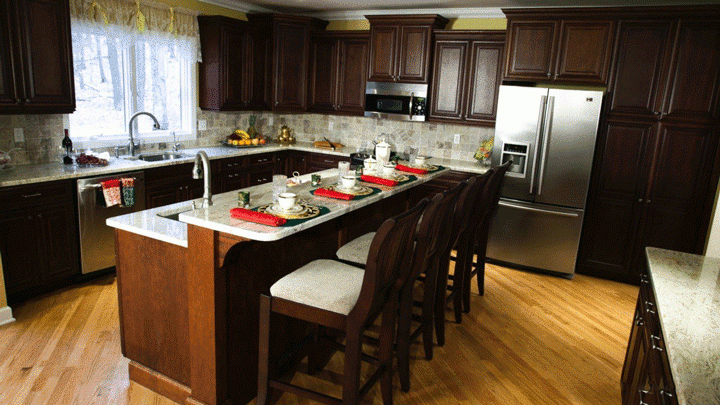
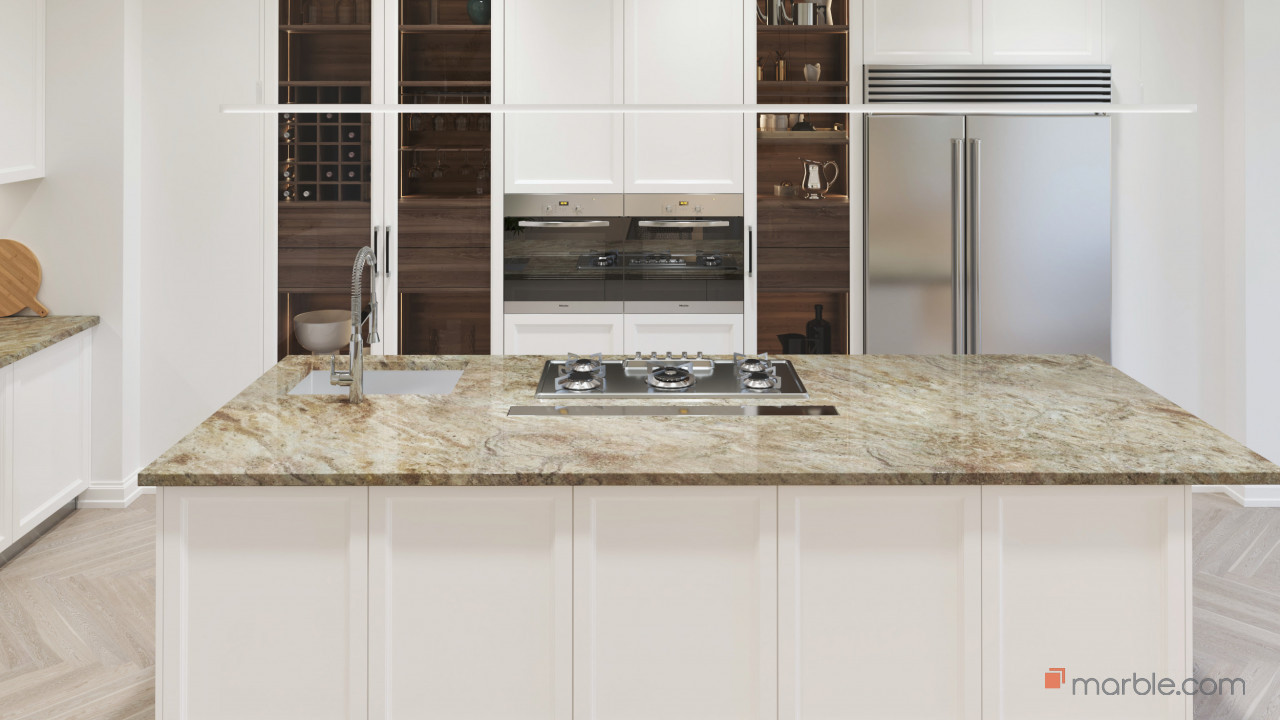
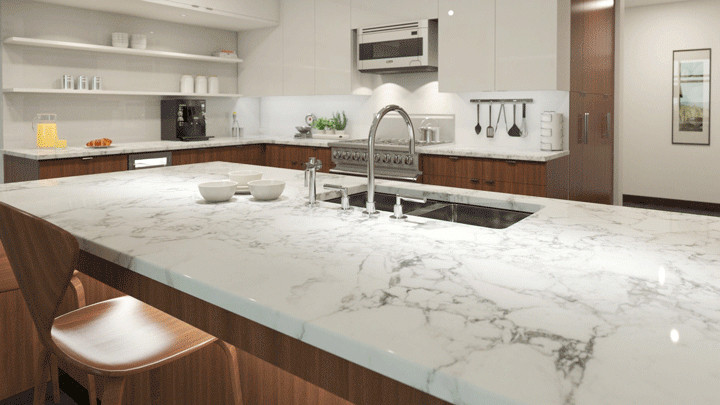
 The article helped me immensely
The article helped me immensely
 I’m now more informed on the subject
I’m now more informed on the subject
 I have questions about Marble.com
I have questions about Marble.com
 The article was not accurate at all
The article was not accurate at all
 There is a serious lack of information
There is a serious lack of information
 I have questions about Marble.com
I have questions about Marble.com